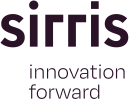Context
"Bio-based fillers for coating applications"
As consumers attach increasing importance to the origin and sustainability of products and European regulations are becoming increasingly stringent in this respect, raw materials of fossil origin are coming under great pressure.
The coating industry also has to adapt to the new requirements. In the meantime, coating developers have reduced emissions of volatile organic compounds (VOCs) by partially switching from solvent-based to water-based coatings, and manufacturers are asking for alternative, environmentally friendly coatings to be included in their product ranges.
Although everyone in the value chain is convinced of the usefulness of bio-based coatings, their introduction is stagnating.
European research and surveys of Flemish companies show that there are several reasons for this delayed breakthrough. There is still a misunderstanding that bio-based coatings would in any case be less efficient than traditional coatings.
However, there are immense opportunities to develop new bio-based coatings thanks to the increasing supply of new bio-based building blocks from (non-food) biomass. Some bio-based coatings have even better or wider application possibilities than fossil-based coatings.
Often, the way the coating is applied appears to have a greater impact on the proper functioning of the coating layer than its composition. For example, (job) coaters do not have sufficient know-how to process and apply bio-based coatings correctly.
Although Flemish coating developers do want to incorporate the new bio-based raw materials in their coatings, start-up is complex, time-consuming and expensive.
Moreover, it is impossible to replace certain chemicals on a "one-to-one" basis. Because many coating developers are not familiar with the composition of bio-coatings, they have insufficient insight into the possibilities and bottlenecks during their development. Internationally, research focuses on the development of building blocks and not on the validation of bio-coating formulations and their application.
Aims
The BioCoat project aims to accelerate the transition to bio-based coatings based on industrially available bio-building blocks by providing coating companies with knowledge about the formulation, application, performance and applications of bio-based coatings. Various tools are being developed for this purpose:
- A white paper will provide them with an overview of the applicability of market-ready organic building blocks and the development process to integrate them into their own product range: a bio-based coating, the application or the integration in an end product.
- The project will follow the development path of four "target formulations" (polyurethane (PU), polylactic acid (PLA), acrylic and epoxy) to demonstrate the transition to a high-quality bio-based alternative in practice. This knowledge base and insights can serve as a starting point for companies to accelerate the application of bio-based coatings for their own markets.
- A coating application will show how coating companies using traditional techniques (squeegee coating, impregnation, spray coating, dip coating or flow coating) can correctly process and apply bio-based coatings to textiles, plastics, composites and metals. Guidelines provide them with insight into the impact on their production process and the required developments and investments.
- Hands-on workshops, demonstrators, white paper, various publications and presentations are geared to the absorption capacity, knowledge level and role of companies in the value chain. The knowledge transfer will encourage companies to accelerate their innovation trajectory.
White paper: Biobased building blocks, intermediates and biobased coatings
One of the first results of this Coock project is this white paper which gives an overview of available monomers, building blocks and bio-based coatings. The paper mainly focuses on various technologies, practical examples and new developments.
If you have any specific questions about bio-based coatings and its applications for your company, please do not hesitate to contact us.
This knowledge transfer may also be of use to your company
To participate in the project, you can contact Brecht Demedts or fill in the form below:
Collective Reseach & Development and Collective Knowledge Transfer (COOCK), financed by Vlaio
Project HBC.2019.2493
Collaboration Sirris & Centexbel
1 January 2020 – 31 December 2022






